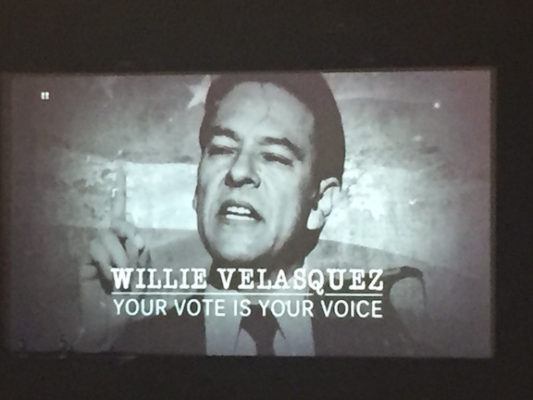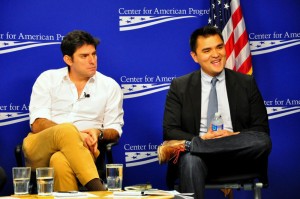Filmmaker Galán honors Willie Velasquez’s Legacy in Latest PBS documentary in run up to Election 2016
|
Chicano filmmaker, Hector Galán documents the legacy of Willie Velasquez, the Mexican-American activist, who launched a grassroots movement that forever changed the political landscape in the United States in his Public Broadcasting Service (PBS) documentary, Willie Velasquez: Your Vote is Your Voice.” The film breaks cultural barriers highlighting the importance of the Latino vote and was recently presented at The University of Texas at El Paso’s Union Cinema and was accompanied by a voter registration effort to honor Velasquez’s legacy. A production of Galan Incorporated and Latino Public Broadcasting, “Willie Velasquez: Your Vote Is Your Voice,” showcases the life of the man who led the Southwest Voter Registration and Education Project and launched 1,000 voter registration drives in 200 cities. Velasquez paved the way for Latinos to have a voice in government and underscored the growing power of the Latino vote. Chicano independent filmmaker, Hector Galan directed the documentary shedding light on the Latino voting revolution.



